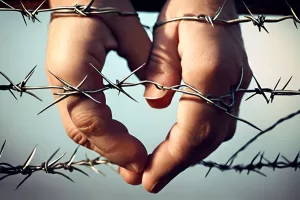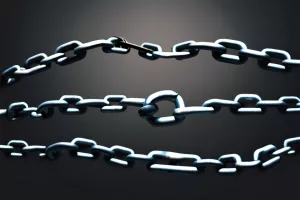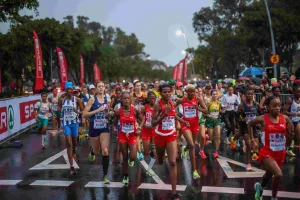Chris Brown’s upcoming concert in South Africa is sparking intense debate because of his past violence against women, particularly his assault on Rihanna in 2009. Advocacy group Women For Change is protesting his performance, arguing that it contradicts efforts to fight genderbased violence, especially in a country where such issues are alarmingly high. The conversation highlights the struggle between celebrating celebrities and holding them accountable for their actions. As South Africa reflects on its values, this situation serves as a reminder to prioritize the safety and dignity of all individuals over celebrity culture.
Chris Brown’s legacy in South Africa stirs up heated debate because of his past, especially the violent incident with Rihanna in 2009. Many activists believe his concerts send the wrong message in a country struggling with high rates of violence against women. Groups like Women For Change argue that celebrating artists with violent histories harms abuse survivors. As South Africa holds its annual campaign against genderbased violence, the timing of Brown’s performances raises questions about how society views art versus ethics. This situation pushes us to think about how we honor talent while supporting those affected by abuse.
Charlize Theron is a Hollywood actress and founder of the Charlize Theron Africa Outreach Project. She is dedicated to eradicating genderbased violence (GBV) and challenges societal norms to safeguard women and girls from GBV. Theron’s personal experience with domestic violence has shaped her activism, and she continues to be a prominent voice in the fight against GBV, which affects one in three women in their lifetime. Through her initiatives and public platform, Theron shows that much more needs to be done to address this global issue.
The ongoing legal battle relates to Luyanda Botha’s alleged 2014 attempted rape case, which resurfaced after his conviction for the murder of Uyinene Mrwetyana in 2019. Botha’s defense attorney seeks discharge under Section 174 of the Criminal Procedure Act, claiming ‘no evidence’ linking his client to the 2014 incident, while the National Prosecuting Authority is expected to put up a strong opposition. The case highlights the critical need to address violence against women and the ongoing fight for justice.
Unveiling the Hardships Faced by GBV Victims: A Deep Dive into South African Authorities
A report from the Office of the Public Protector has revealed the poor assistance provided to victims of genderbased violence (GBV) by South African authorities, including the police service and departments of social development and justice. The investigation was triggered by the tragic death of Altecia Kortje and her daughter after Kortje was dismissed when seeking a protection order. The report found dilapidated court buildings, malfunctioning equipment, a lack of victimfriendly spaces, and deficiencies in the GBV support initiatives. The Public Protector has recommended training for the police service and detailed project plans from all departments to address these concerns.
Women for Change, a nonprofit organization, is making progress in combating genderbased violence and femicide in South Africa, despite financial challenges. Their advocacy and support for survivors have helped create a supportive community and garnered nearly 400,000 followers on social media. However, funding deficits threaten the organization’s survival, but a BackaBuddy campaign has garnered support from over 183 unique donors. While progress has been made, the increasing rates of femicide and GBV remind us of the work that remains.
The Khuseleka OneStop Centre is a new establishment within the Saartjie Baartman Centre for Women and Children that offers a range of services for victims of crime and violence, including trauma therapy, legal advice, healthcare, and substance abuse treatment programs. Despite facing challenges in acquiring support and recognition, the centre stands as a beacon of hope and a testament to the fight against genderbased violence and femicide. The inauguration coincided with the signing of the National Council of GenderBased Violence and Femicide Bill, indicating progress in both policy formulation and practical application.
South Africa’s government has passed two important laws the National Council on GenderBased Violence and Femicide Bill and the National Prosecuting Authority Amendment Bill to combat corruption and genderbased violence. The National Council on GBVF will coordinate efforts to tackle the crisis, while the NPA Amendment Bill grants permanent status to the Investigating Directorate against Corruption to improve the fight against corruption. These legislative advancements represent the government’s commitment to creating a more equitable society, and it is a shared responsibility of all stakeholders to back these efforts.
A man named Luyanda Botha is facing trial in South Africa for another attempted rape, adding to his previous conviction for the rape and murder of Uyinene Mrwetyana. Both incidents highlight the ongoing battle against genderbased violence in the country. The trial also uncovers a disturbing pattern of behavior by Botha, whose actions have become a potent symbol of South Africa’s struggle against gender violence, with efforts underway to transform the location of Mrwetyana’s tragic death into a symbol of hope and healing.
A shocking story of violence and betrayal emerged from KwaZuluNatal, South Africa, in May 2022, when a man murdered his fiancé and subjected his daughters to shocking assaults. He was sentenced to life imprisonment for his crimes. The case highlights the importance of reporting crimes against women and children, and law enforcement’s commitment to punishing those who prey on vulnerable members of society. The KwaZuluNatal Police Service advocates for victims to come forward, as reporting such crimes is a step towards justice and eradicating genderbased violence.
Genderbased violence (GBV) is a pervasive issue in South Africa’s Western Cape, with overburdened police forces leading to incomplete investigations and missing case files resulting in a minimum of ten GBV cases being discarded within a sixmonth timeframe. The Western Cape’s Department of Police Oversight and Community Safety has called for immediate action to address this structural issue, highlighting the severity of the problem and the need for accountability and justice for victims. It is society’s shared duty to staunchly oppose genderbased violence and push for decisive action to protect vulnerable individuals.
Ashleigh Ogle is a celebrity known for her work in the entertainment industry and reality TV. She recently became an advocate against genderbased violence in South Africa after experiencing abusive relationships herself. Ogle’s powerful victory in a celebrity boxing match, which she dedicated to GBV victims, has solidified her status as an icon and a voice for those silenced by GBV. Her story serves as a testament to the resilience, determination, and empowerment of women who continue to battle against GBV.
The Anatomy of Violence Based on Gender in the Western Cape: A Continued Fight for Justice
The Western Cape Department of Police Oversight and Community Safety revealed that 89 cases of genderbased violence were dropped from the court roll in six months due to the ineffectiveness of the South African Police Services. However, the Court Watching Brief Unit aims to monitor and strengthen SAPS in tackling these issues, and the government has committed R1.6 billion to fund and implement an Emergency Action Plan on GenderBased Violence and Femicide. Despite these efforts, the fight for justice against genderbased violence continues in the Western Cape.
The SPAR Women’s Challenge in Cape Town is a road race exclusively for women that promotes women’s health, empowerment, and raises awareness and funds to end genderbased violence. The event offers a 10 km race and a 5 km fun walk/run and is dedicated to improving women’s lives through donations of sanitary pads and supporting abuse survivors. Over 14,000 women are expected to participate in the race, which is more than just a race but a celebration of community spirit and wellbeing.
Mpharu Hloyi, Cape Town’s first black female scientific officer and advocate against genderbased violence, was tragically shot and killed by Ivan Magokane, a man she had tried to help. Magokane was sentenced to life in prison for Hloyi’s murder and other charges. Hloyi’s passing left an immeasurable void in the city she had served with unwavering devotion. This heartrending tale underscores the bravery of women like Hloyi and Malema, who persist in their fight against genderbased violence, inspiring hope for a future devoid of oppression and fear.
A horrific incident at Susannah Fourie Primary School in Nelson Mandela Bay has highlighted the issue of genderbased violence in South Africa. Recent crime statistics reveal a concerning rise in sexual offenses, with the majority of these crimes occurring in homes and being perpetrated by acquaintances. A brave survivor fought for justice against the Eastern Cape Education Department, which admitted negligence and agreed to pay her R5 million in damages, underscoring the need for systemic change in the South African education system and wider society.
















